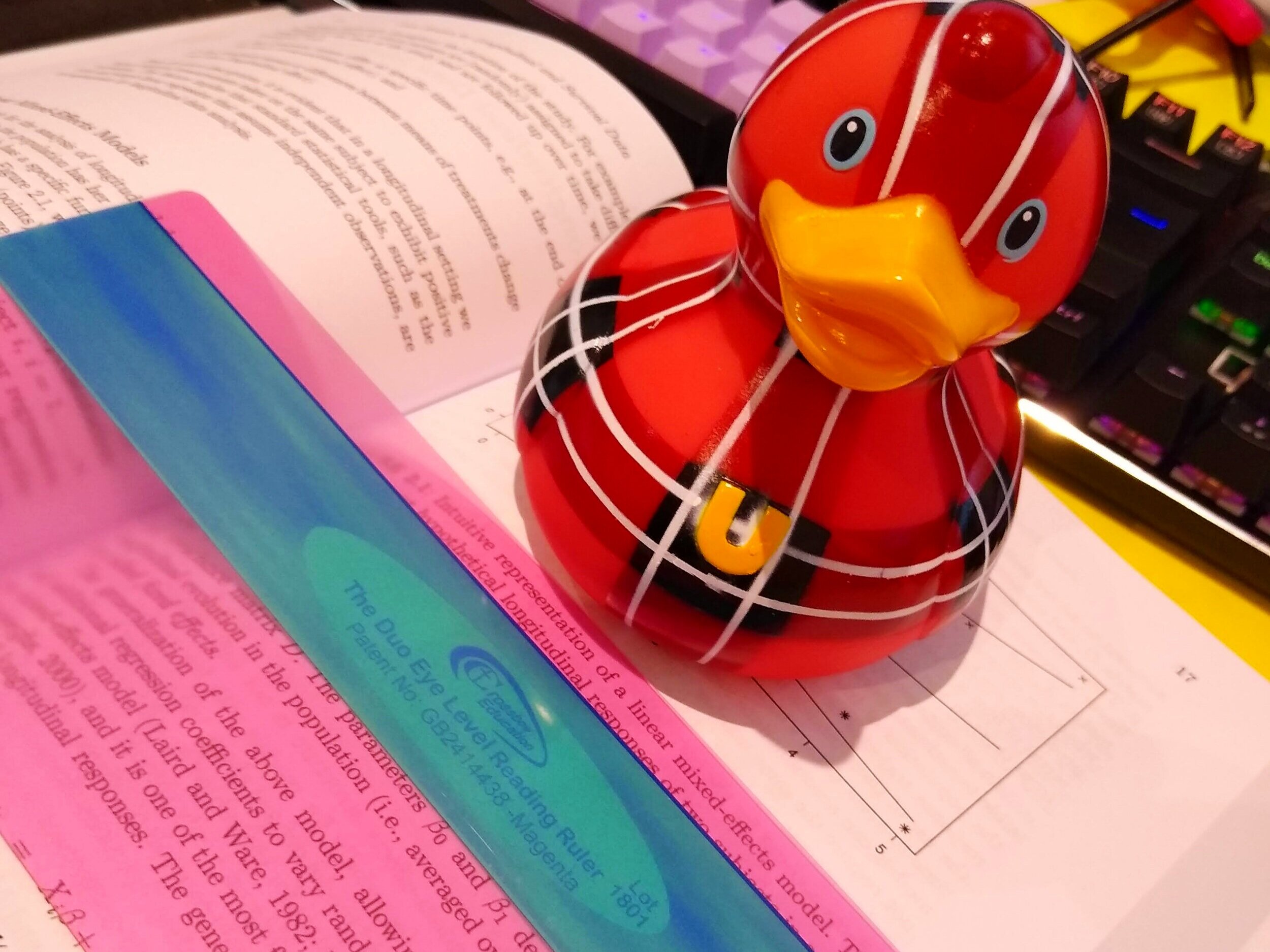Researching for a PhD with Dyslexia and Dyspraxia
Ryan Field is a PhD candidate in Public Health, researching Joint Models in Heart Failure. In this blog post, he discusses the challenges of taking on a PhD with dyslexia and dyspraxia, and the range of support available via the UofG Disability Service.
I started my PhD in October 2019, and whilst I had stated my disabilities when I applied to the programme (and again when completing registration) it wasn’t until January 2020 that I registered fully with the University Disability Service. I have both dyslexia and Developmental Co-ordination Disorder (DCD, otherwise known as dyspraxia), as well as a physical tick.
Having a specific learning disability can be a struggle. Words can jumble whilst I’m reading them, and sometimes I can miss spelling or grammar mistakes because in my mind I have written it correctly. Often when reading things back to myself I read them as I thought I had written them and not as they are written. Contrast and colours are also very important for me, especially on presentations. I personally struggle to read text if a slide is too busy, if there are too many colours or if there is not enough contrast between them.
Throughout my life I have developed strategies to try and overcome these disabilities so when I started my PhD, I wasn’t sure if I needed any support from the University. To be honest, I have always been embarrassed and up until my mid-twenties my tick was obvious, so I found it hard to ignore. My tick recently caused me to throw a sandwich over a professor at an away day. Thankfully they were understanding, but I was mortified.
I decided I needed to get support from the University once I had started my systematic review; there was simply too much reading not to get help. I contacted the Disability Service and arranged a meeting to fully register. Thankfully I had a current adult specific learning disability report, so I did not need to undergo an assessment to obtain this. I met with a friendly advisor and they went through my disability report with me, and informed me of the services and help they could offer. I explained to them that I struggled the most with reading, writing, spelling and grammar.
One of the most helpful services that was suggested was the Read and Write Gold software that is available from the software centre on the Staff Standard Desktop (which all PhD students have access to). This has many features including screen tinting, advanced spelling and grammar, and the ability to read any text aloud.
The help I received from the Disability Service made me feel truly supported, which I have not always experienced during my education. With their support I have been able to manage my studies and the systematic review. Whilst I still struggle with things such as spelling and grammar, I do not let them hold me back. I hope that by writing this blog post, I can raise awareness of the Disability Service and encourage other students with disabilities to register- you won’t regret it.
The Disability Service is available to all students with disabilities, learning difficulties and medical conditions, and new PGRs are encouraged to register if they would benefit from their support. The Disability Service is currently undertaking a review of the support that they provide and would welcome PGR input to this- you can email them at disability@glasgow.ac.uk. The Researcher Development Team at #PGRTowers are also committed to making sure that our work is accessible; we encourage all of our trainers to think about the clarity of their slides and resources for PGR training sessions. We really encourage PGRs to let us know if there’s something we could be doing differently or better, to improve their experience.



